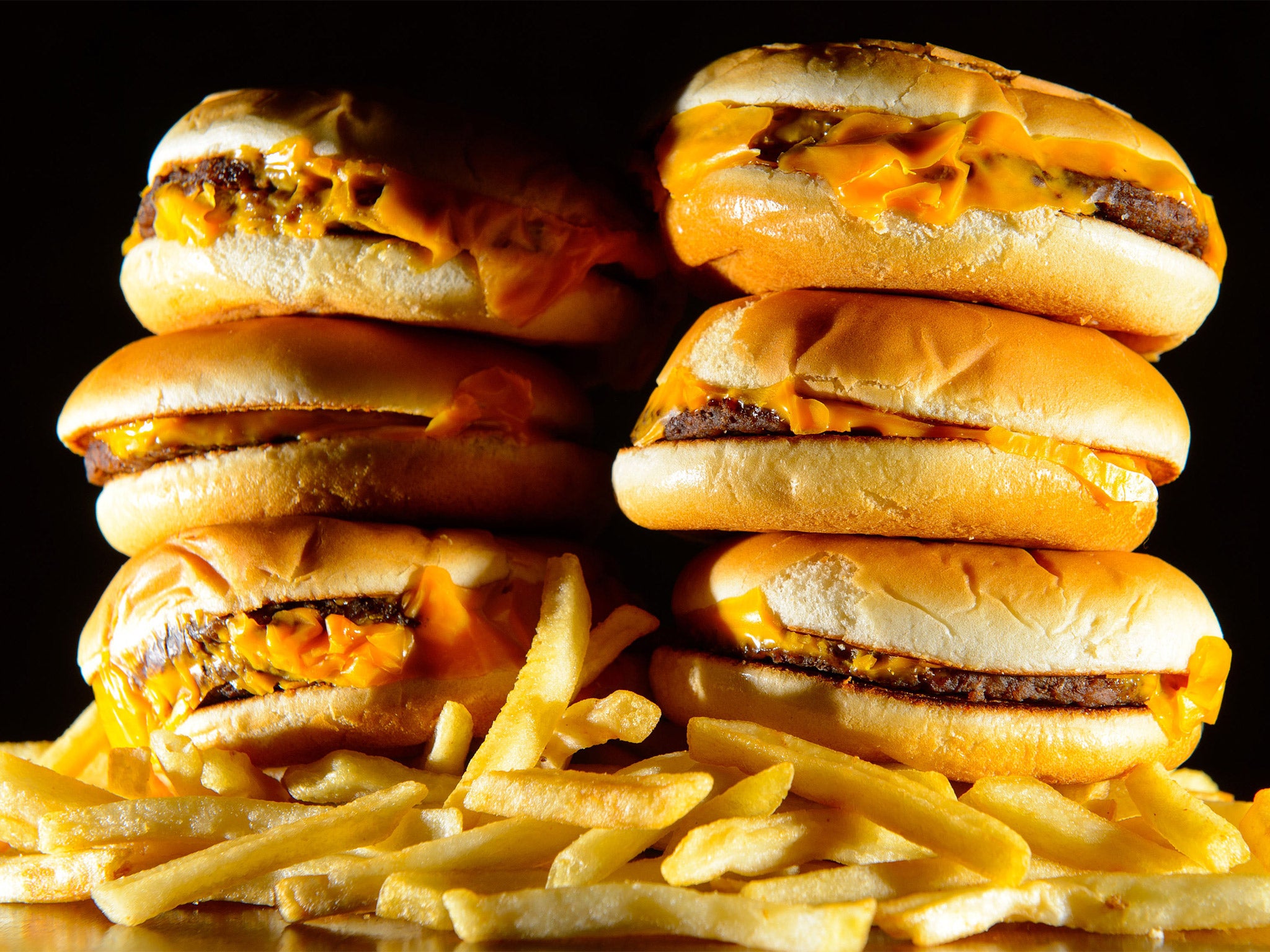Obesity is an eating disorder just like anorexia - and it's time we started treating it that way
After I was diagnosed with anorexia-not-severe-enough-to-be-sectioned and put on a waiting list for ‘talking therapy’ by my GP, there followed a period of compulsive eating. What I found in my binges was another way to express my discontent


Your support helps us to tell the story
From reproductive rights to climate change to Big Tech, The Independent is on the ground when the story is developing. Whether it's investigating the financials of Elon Musk's pro-Trump PAC or producing our latest documentary, 'The A Word', which shines a light on the American women fighting for reproductive rights, we know how important it is to parse out the facts from the messaging.
At such a critical moment in US history, we need reporters on the ground. Your donation allows us to keep sending journalists to speak to both sides of the story.
The Independent is trusted by Americans across the entire political spectrum. And unlike many other quality news outlets, we choose not to lock Americans out of our reporting and analysis with paywalls. We believe quality journalism should be available to everyone, paid for by those who can afford it.
Your support makes all the difference.Sometime around Christmas 2013, I found myself on ITV This Morning’s sofa discussing the case of a 5-year-old girl who had been taken away from her parents after reaching ten stone.
As is their wont, This Morning had paired me with an ‘opponent’, a health journalist called Danni Levy, who is now also a reality TV personality.
Danni maintained that allowing your child to become obese was ‘child abuse of the worst kind’ and she supported the decision for the anonymous girl to be taken from her family. I couldn’t help but wonder (aloud) whether Dani, the tabloids (who had without exception gleefully jumped on the story, digitally dismembering the child’s body and pasting chunks of her belly flesh across their front pages) and the public’s attitude would have been the same had this child had anorexia.
It’s a question I also posed during a radio debate with Nick Ferarri of LBC, when he asked why he should feel sorry for a Scottish teen who was too large to leave her bedroom (while he made ‘mmm mmm mmm yummy’ noises, for reasons best known to himself).
I asked whether his reaction would be more compassionate if the teen was starving, instead of bingeing, behind the walls of her house. His response was a gratifying nanosecond of dead air.
In both instances the social media reaction was swift. I was called a ‘daft bint’, a ‘silly cow’ who didn’t understand that anorexia was a ‘serious mental illness’ whereas obesity was simply about greed (and possibly sugar addiction).
Now, let me be clear. I’m not talking about common-or-garden slight overweightness, which in all probability is the result of greed or sugar addiction of the type most of us are guilty. But if one eats oneself into a state where it is impossible to move, that must, in my opinion, suggest a psychological element. It is not the sign of a mentally well person to abuse one’s body with such vicious disregard.
I speak from personal experience. In my early teens, long before the eight years I languished under the suffocating presence of bulimia nervosa, I briefly ‘flirted’ with anorexia. I starved myself for less than a year, yet it was still enough to stunt my growth (I’m 5 foot 11 but my doctor reckons I should be 6 foot 2) and to leave me undernourished.
My body reacted as bodies are wont and it cried out for nutrients in whatever form it could imbibe them.
Our bodies don’t understand our long-term goals. They aren’t designed to withstand whatever random regimes our minds dream up in the hope of fitting into our bikini for summer. They can only exist in and respond to two states – getting enough food, or not. The latter results in an urge to ‘binge’ (which is why diets are so often fail).
And so after I was diagnosed with anorexia-not-severe-enough-to-be-sectioned and put on a waiting list for ‘talking therapy’ by my GP, there followed a period of compulsive eating. What I found in my binges was another way to express my discontent.
Eating disorders are mental illnesses, born out of one or a range of complex emotions – low self-worth, a response to trauma, bullying or abuse, a desire for control, to name but a few. The food and exercise element is a symptom, an expression of whatever is happening in the mind. For me, overeating came from the same emotional and mental space as starvation and continued long after I had compensated for the calorie ‘deficit’ caused by anorexia. Which is why I’m reluctant to dismiss extreme obesity as simply a case of physical greed.
B-eat, the UK’s largest eating disorder charity, agree with me and last year classified ‘binge eating disorder’ within its official spectrum of definitions.
This week is Eating Disorder Awareness Week here in the UK and I’d like to use it as an opportunity for us to put aside our prejudices, and try to summon some of the sympathy we feel when we see a severely underweight person when dealing with those who fall at the other side of the spectrum.
The prevailing press rhetoric might encourage us to sneer at the overweight and the ‘strain’ they place on our NHS, but until we acknowledge the psychological elements of overeating we’ll be no closer to solving the obesity crisis (or, as I call it ‘the crisis of bad lifestyle’, since some obese people are perfectly healthy).
Put simply, it’s time we changed our attitudes.
Join our commenting forum
Join thought-provoking conversations, follow other Independent readers and see their replies
Comments